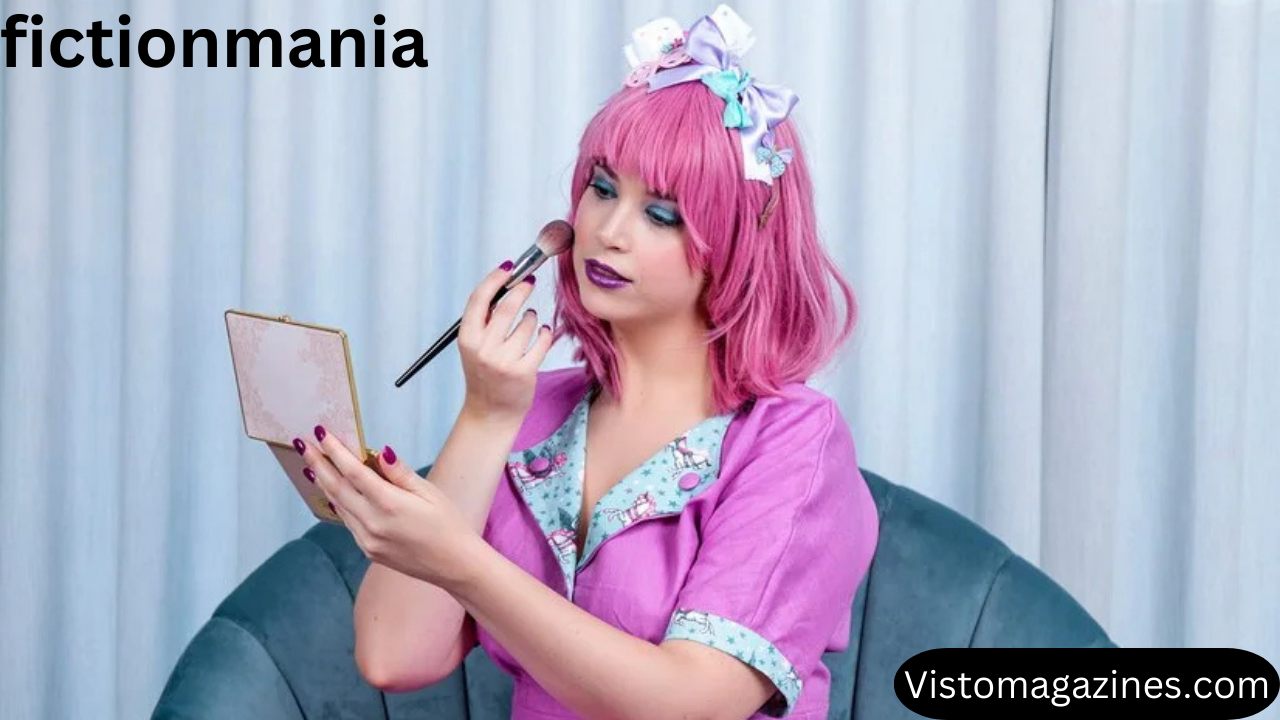Fictionmania?? Exploring the Fascinating World of Fictional Transformation and Storytelling
Fictionmania is a unique and intriguing concept that draws the attention of writers, readers, and creators who are passionate about fiction. It combines elements of transformation, fantasy, and often speculative themes into vivid stories that captivate the imagination of readers. From gender transformations to complex narrative worlds, fictionmania serves as a genre where creativity knows no bounds. But what exactly is “Fictionmania,” and why has it become so popular among specific online communities? In this article, we will delve into the various aspects of fictionmania, its origins, and its significance in the broader landscape of storytelling.
What is Fictionmania?
Fictionmania is a term most commonly used in reference to a genre of stories, often published online, that features transformations of characters. These transformations can be physical, emotional, or even psychological, and often involve changes in gender, appearance, or personality. Though the genre is closely tied to the themes of transformation, fictionmania also encapsulates stories that explore other fantastical or speculative elements, such as magic, science fiction, and alternative realities.
The hallmark of fictionmania is that it frequently involves the transformation of a character’s gender or body, which allows for exploration of identity, self-perception, and personal growth. These transformations can be initiated through a variety of means, from magic spells and advanced technology to wish fulfillment or mysterious powers. Regardless of the method, the transformation is always central to the story, with the resulting changes often pushing characters into unfamiliar, challenging, or enlightening circumstances.
Origins of Fictionmania
Fictionmania is often associated with online communities where writers and readers alike share their passion for transformation-themed narratives. While the genre itself has roots in science fiction and fantasy literature, its modern expression can be traced back to the advent of internet fan fiction and niche forums that began to flourish in the late 1990s and early 2000s. These online spaces allowed fans to create and share stories that explored niche themes, including gender transformation, body swap, and other types of physical or identity-based changes.
One of the pivotal moments in the development of fictionmania was the creation of dedicated websites, such as FictionMania.org, which served as a central hub for writers and readers of transformation fiction. Over time, these sites cultivated a distinct subculture of writers who were drawn to themes of change, self-discovery, and the exploration of different perspectives. While the genre was initially niche, its appeal has grown over the years as more people discover the compelling narrative possibilities it offers.
Themes and Storytelling in Fictionmania
Fictionmania stories are known for their diverse themes, but certain recurring elements help to define the genre. One of the most prominent themes in fictionmania is the idea of transformation as a vehicle for self-discovery. Many stories center around characters who undergo dramatic changes—whether physical, mental, or emotional—and must navigate the challenges of their new identity.
This theme of self-discovery is often tied to the exploration of gender and identity. Many fictionmania stories involve gender transformations, where a character is transformed from one gender to another. This can lead to complex explorations of gender roles, societal expectations, and personal acceptance. For example, a male character might be turned into a female, and through the process, they learn to understand and experience the world from a different perspective. This can lead to themes of empathy, empowerment, and the deconstruction of traditional gender norms.
In addition to gender transformations, other common themes in fictionmania include body swapping, magical transformations, and futuristic scenarios where characters undergo radical physical or mental changes. These transformations often serve as metaphors for personal growth, the challenges of adapting to new circumstances, or the consequences of wish fulfillment gone awry. In some cases, the transformation may lead to unforeseen complications or unexpected outcomes, adding layers of conflict to the narrative.
The Appeal of Fictionmania
The allure of fictionmania lies in its ability to explore themes that are both fantastical and deeply human. At its core, fictionmania offers readers the opportunity to vicariously experience what it would be like to undergo a transformation. These transformations allow for a temporary escape from reality, while also encouraging introspection about identity, self-worth, and the nature of change.
One key aspect of fictionmania’s appeal is its emphasis on the emotional and psychological effects of transformation. Rather than simply focusing on the physical changes, many fictionmania stories delve into the inner turmoil, challenges, and personal growth that come with these transformations. Readers are often drawn to the emotional journeys of the characters, as they grapple with new identities, altered perspectives, and the ways in which their relationships with others shift.
Furthermore, fictionmania allows for a kind of wish fulfillment. Readers and writers alike may be attracted to the idea of altering their identity or exploring different aspects of their personality through transformation. Whether it is the desire to experience life as the opposite gender, or to step into the shoes of a completely different person, fictionmania offers a space where these desires can be explored in a safe, imaginative way.
The Role of Transformation in Fictionmania
Transformation is the central theme of fictionmania, but its significance goes beyond just the plot device. The act of transformation in fictionmania serves as a powerful metaphor for change and growth. It represents the fluidity of identity and the potential for reinvention. Through transformation, characters are forced to confront their preconceived notions about themselves, the world, and others.
For example, a character who undergoes a gender transformation may find that their new identity gives them access to experiences and opportunities that were previously unavailable. This shift can be both liberating and disorienting, as the character must navigate a new reality and come to terms with their changing sense of self. In some stories, characters may struggle with their new form or identity, only to emerge stronger or more self-aware by the end of the story.
In other instances, the transformation may be more symbolic, representing a character’s internal journey. A physical transformation could mirror an emotional or psychological transformation, where a character learns to accept themselves or overcome a personal obstacle. This dual layer of meaning adds depth to fictionmania stories, as the transformations are often tied to larger themes of self-empowerment, redemption, or acceptance.
Fictionmania and the Evolution of Genre Fiction
As a subgenre, fictionmania has evolved alongside changes in the wider world of genre fiction. The growth of online platforms and self-publishing has allowed for greater freedom and diversity in storytelling. Writers of fictionmania can explore more niche themes, experiment with different genres, and reach audiences that share similar interests.
The genre has also influenced other forms of media. Television shows, movies, and video games that explore themes of transformation and identity have become more mainstream, and some elements of fictionmania can be seen in these broader forms of media. For example, shows like Buffy the Vampire Slayer and Orphan Black feature characters who undergo dramatic transformations, and their popularity has helped bring attention to the wider cultural fascination with identity shifts and body changes.
Criticism and Controversies Surrounding Fictionmania
Like any genre or subculture, fictionmania is not without its critics. Some argue that the focus on transformation, especially gender transformation, can be problematic or overly simplistic. Critics have raised concerns that such stories might perpetuate unrealistic or reductive ideas about gender identity or that they might trivialize serious issues related to gender and selfhood.
However, supporters of fictionmania argue that the genre provides a creative and empowering way to explore identity, transformation, and personal growth. They believe that fictionmania serves as a space for imaginative exploration, offering readers the chance to reflect on their own experiences with change, self-image, and identity.
Conclusion: The Enduring Power of Fictionmania
Fictionmania is more than just a genre—it’s a space for creativity, self-exploration, and the celebration of transformation. Whether it’s through gender swaps, body changes, or emotional journeys, fictionmania stories offer a unique lens through which to explore identity, personal growth, and the complexities of the human experience. The genre has found a devoted community of readers and writers, and its influence can be seen in various forms of popular culture. As storytelling continues to evolve, fictionmania will undoubtedly remain a captivating and thought-provoking part of the narrative landscape.



